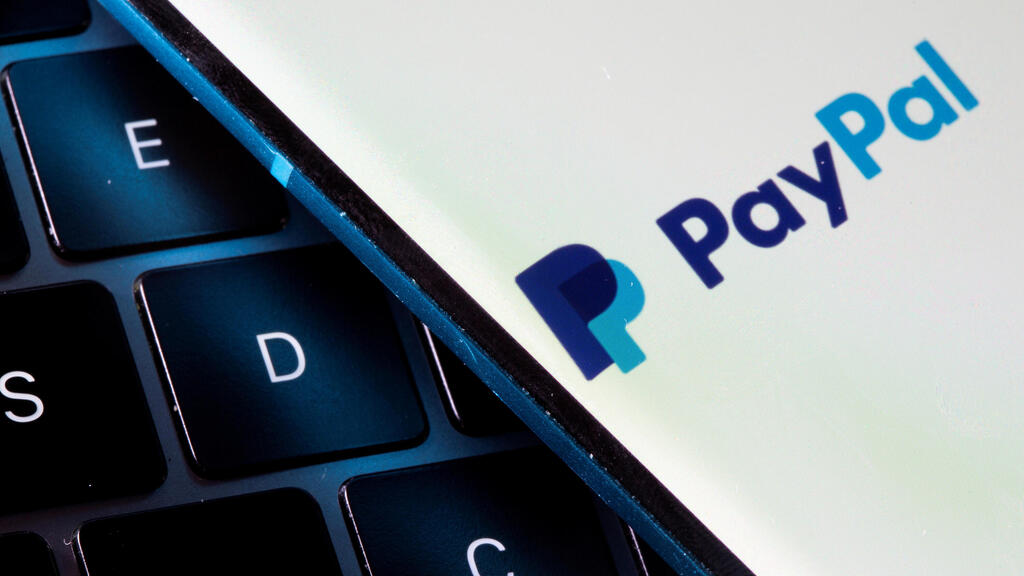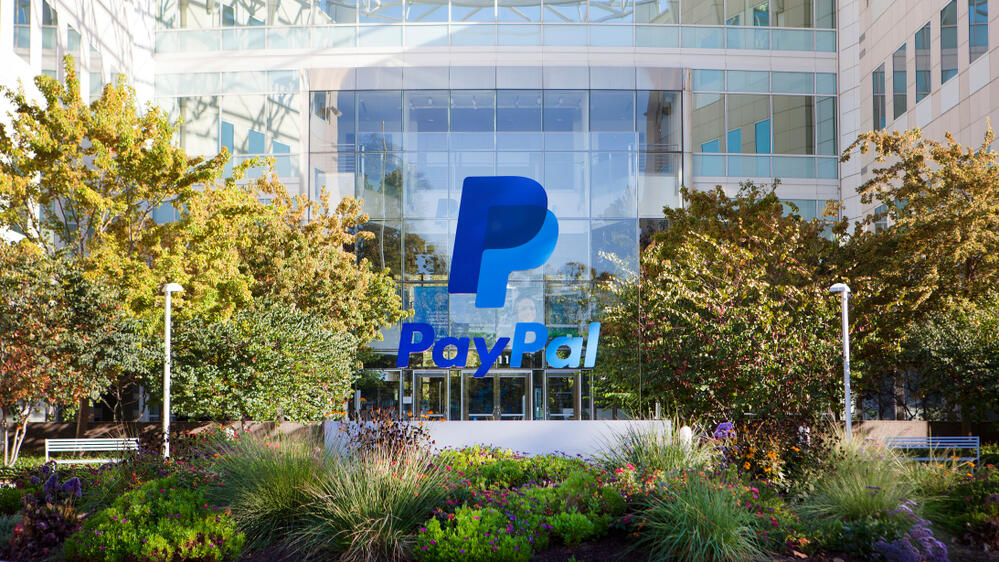Payments giant PayPal has introduced a new cryptographic stablecoin linked to the US dollar, signaling a potentially positive development for the cryptocurrency market. As the company grapples with a challenging financial period, this novel crypto asset, though lacking broad public use, might offer a means to generate profits through an existing financial instrument—American bond yields.
Read more:
In making this announcement, PayPal's CEO, Dan Schulman, emphasized the need for a stable digital currency that seamlessly integrates with national currencies, like the US dollar, to facilitate the ongoing transition to digital forms of money.
How does it work?
Operating on the Ethereum network and issued by Paxos Trust Co., the PayPal Coin (PYUSD) serves as a cryptocurrency. Ethereum, a widely recognized blockchain network, utilizes a relatively centralized proof method that currently follows an eco-friendly approach. The introduced currency falls within the "stable currency" category, inherently linked to a nation's currency value. Specifically, one PayPal coin equals 1 US dollar. Customers using PayPal can acquire this currency at a straightforward one-to-one exchange rate, free from additional fees. However, those seeking to purchase the coin using other select cryptocurrencies supported by the platform may be subject to specific and variable charges. As the initiative progresses, users will eventually gain the ability to transfer their coins between PayPal accounts and Venmo wallets.
What is a stable currency?
Stablecoins with cryptographic foundations have existed for over a decade, constituting a collective market value of approximately $126 billion. Diverse stablecoins employ varied mechanisms, with one algorithmic stablecoin gaining notoriety for triggering a chain reaction in the crypto market crash the previous year, exemplified by the downfall of the Terra Luna stablecoin project. Many prominent stablecoins, including Tether's USDT, uphold rate stability by maintaining full reserves to correspond with issued coins. Among them, Tether's USDT is particularly recognized, boasting a market value of about $84 billion. In the case of PayPal, the company has unveiled a commitment to secure each issued coin with one-to-one backing via deposits in U.S. dollars, short-term U.S. bonds, and cash holdings. This strategic approach ensures that PayPal's clientele can redeem their currencies for U.S. dollars at any juncture.
Who is eligible to utilize this service?
Currently, access to the currency is exclusively granted to U.S.-based PayPal customers, excluding residents of Hawaii. Given its deployment on the Ethereum platform, there is a possibility that the coin could become accessible to a wider audience. Nevertheless, at present, its usage remains confined to the closed PayPal ecosystem and its American user base.
How can the system be trusted?
As a seasoned player in the fintech sector, PayPal's demonstrated program underscores its assimilation of lessons from prior endeavors pursued by other companies in similar veins. The company not only pledges to fully back every issued coin but also commits to releasing monthly reports that meticulously outline the composition of its reserves. To bolster credibility, an external auditor will verify these reports. This commitment to transparency aligns with public demands and users' calls for greater clarity, particularly among firms issuing other stablecoins, with a spotlight on Tether, the primary issuer in the stablecoin market.
Why does this sound familiar?
Similar ambitions were pursued by Facebook, albeit they met with failure. For a number of years, Facebook means to establish a domestic and global payment system bolstered by a cryptographic stablecoin under its issuance. Despite engaging in collaboration and sustained discourse with regulators across the globe, these regulatory bodies ultimately harbored concerns that the project could pose a threat to worldwide financial stability. With Facebook's extensive network comprising around 2 billion users globally, regulators apprehended that this assertive presence might potentially challenge the dominance and utility of established currencies such as the dollar, potentially transforming Facebook into a quasi-private global bank. In February, the New York Department of Financial Services even directed Paxos, the identical currency issuer utilized by PayPal, to halt the issuance of the stable currency linked to the colossal Binance exchange.
What are PayPal's motives in this endeavor?
Over the past few years, PayPal has sought to carve out its niche within the crypto market. In 2020, it ventured into the realm by introducing services encompassing currency acquisition, trading, and payments utilizing a limited array of cryptocurrencies. Subsequently, it unveiled "Checkout with Crypto" in 2021, permitting consumers to transact with businesses supporting cryptocurrencies. Furthermore, in 2022, PayPal extended its services to allow users to transfer their coins from PayPal accounts to wallets and other crypto exchanges.
What propels the issuance of a stable currency?
The motivation behind PayPal's stable currency issuance likely centers on anticipated profitability. In its announcement, the company expounded that PYUSD's early utilization is projected to be primarily among seasoned participants in the crypto market for trading and developers' use. Nevertheless, the company envisions broader adoption in the future for payment transfers and minor transactions. If PayPal effectively establishes the currency's stability and secures the endorsement of regulators worldwide, affirming that the system doesn't challenge their financial sovereignty, the company could further accrue returns by investing in U.S. bonds.
PayPal's confidence in the project appears substantial enough to propel the company towards issuing a cryptocurrency amidst one of the industry's most uncertain periods, particularly as it garners heightened scrutiny from regulatory bodies. A glance at the company's stock performance reveals a potential sense of vulnerability. Year-to-date, PayPal's stock stands as the third weakest performer on the Nasdaq, registering a 14% decline since the beginning of the year. This contrasts with the Nasdaq index's impressive surge of 34%. Following the currency launch announcement, the company's shares experienced a 1.16% uptick.
What does the community think?
Public sentiment diverges on this matter. A significant portion of the community welcomes this move, viewing PayPal as a prominent and well-regarded fintech brand that extends accessibility to the crypto market for a broad audience. Many individuals refrain from entering the crypto sphere due to various factors, including technological complexity or a lack of interest in novel digital payment alternatives. Additionally, some hold reservations about an ecosystem renowned for being rife with scams and fraud. In their view, the affiliation with a well-established brand could serve as a critical bridge for this extensive audience, potentially fostering greater engagement and utilization within the crypto market, and potentially serving as an alternative to conventional financial services.
Conversely, certain segments underscore the inherent tension between PayPal and the original goals of the crypto market. PayPal has been among the service providers capable of curbing usage, closing accounts, or rejecting payment processing on its platform when prompted by public pressure or its own discretion. Notably, it closed PayPal accounts linked to white supremacist groups associated with the violent Charlottesville rally in 2017. In 2021, PayPal attracted attention once again by declining to process payments for activists within the Tor community (an encrypted and anonymous network).
On each instance of this financial censorship by PayPal, explanations have been notably scant, and avenues for appeal are absent. Such occurrences contribute to the surge in popularity of cryptocurrencies, designed to be resilient against censorship from governments or other entities.



